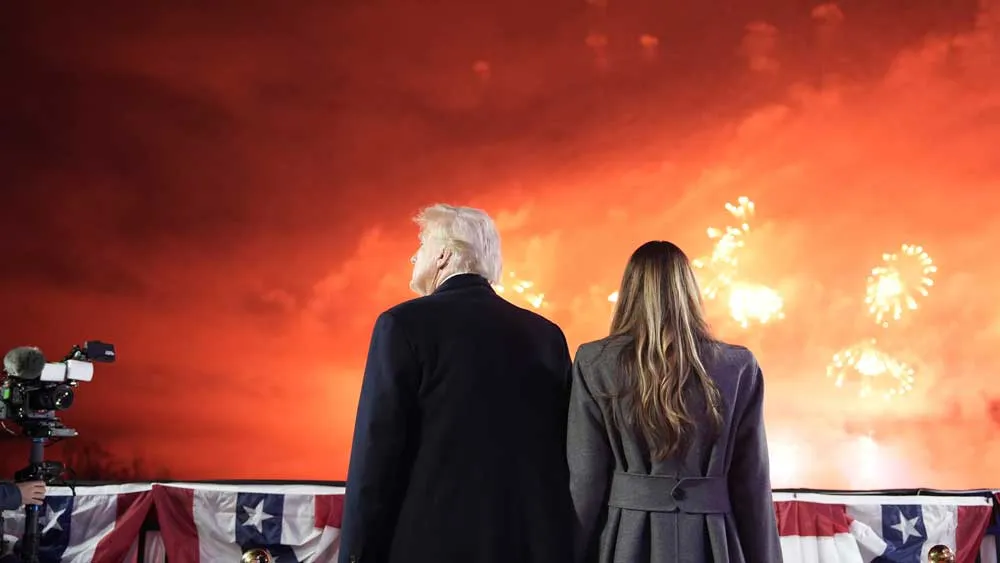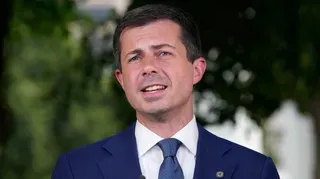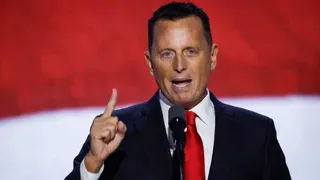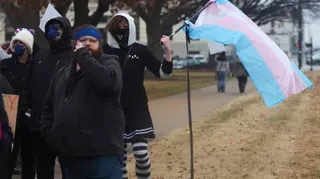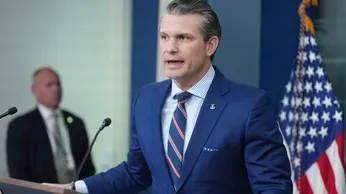
Feb 18
Judge Questions Motives for Trump's Order Banning Transgender Troops
Michael Kunzelman READ TIME: 3 MIN.
A federal judge on Tuesday questioned President Donald Trump's motives for issuing an executive order that calls for banning transgender troops from serving in the U.S. military, describing a portion of the directive as "frankly ridiculous."
U.S. District Judge Ana Reyes indicated that she won't rule before early March on whether to temporarily block the Trump administration from enforcing the order, which plaintiffs' attorneys have said illegally discriminates against transgender troops.
But her questions and remarks during Tuesday's hearing suggest that she is deeply skeptical of the administration's reasoning for ordering a policy change. Reyes also lauded the service of several active-duty troops who sued to block the order.
"If you were in a foxhole, would you care about these individuals' gender identity?" the judge asked a government attorney, who answered that it "would not be a primary concern of mine."
Trump's Jan. 27 order claims the sexual identity of transgender service members "conflicts with a soldier's commitment to an honorable, truthful, and disciplined lifestyle, even in one's personal life" and is harmful to military readiness. It requires Defense Secretary Pete Hegseth to issue a revised policy.
Six transgender people who are active-duty service members and two others seeking to join the military sued to block the Trump administration from enforcing the order. In a court filing, plaintiffs' lawyers argued that Trump's order openly expresses "hostility" and constitutionally impermissible "animus" toward transgender people.
Reyes said the order's language smears thousands of transgender troops as dishonest, dishonorable and undisciplined.
She asked Justice Department attorney Jason Lynch: "How is that anything other than showing animus?"
"I don't have an answer for you," Lynch responded.
"No, you have an answer. You just don't want to give it," the judge shot back.
Trump's order also says that "use of pronouns that inaccurately reflect an individual's sex" is inconsistent with a government policy to "establish high standards for troop readiness, lethality, cohesion, honesty, humility, uniformity, and integrity."
Reyes said it is "frankly ridiculous" to suggest that pronoun usage could impact the military readiness of the U.S. armed forces.
"Because it doesn't. Because any common sense, rational person would understand that it doesn't," said Reyes, who was nominated by President Joe Biden, a Democrat.
Reyes peppered Lynch for several hours with questions about the executive order. They disagreed on whether the language of the executive order explicitly bans transgender people from serving in the military.
Reyes asked Lynch if Trump himself would call it a ban, then added, "He would say, 'Of course it is,' because he calls it a transgender ban." Lynch said the order itself doesn't require the discharge of service members while Hegseth crafts a policy that reflects it.
"Everyone knows a change is coming. I'm not denying that," Lynch said.
Reyes is expected to hear more arguments on Wednesday and again on March 3.
Plaintiffs' attorneys contend Trump's order violates transgender people's rights to equal protection under the Fifth Amendment, marking them as "unequal and dispensable, demeaning them in the eyes of their fellow service members and the public."
"The ban is an irrational and prejudicial attack on service members who have risked their lives to serve their country," they wrote in a court filing.
Government attorneys say the plaintiffs are prematurely challenging an order that doesn't immediately require transgender troops to be discharged. The Justice Department also argues that the constitutional right to equal protection "requires only that similarly situated persons be treated alike."
"A transgender individual identifying as a woman is not similarly situated to a biological female, nor is a transgender individual identifying as a man similarly situated to a biological male," they wrote.
During Trump's first term, the Republican issued a directive directive to ban transgender service members. The Supreme Court allowed the ban to to take effect. Biden scrapped it when he took office.
Thousands of transgender people serve in the military, but they represent less than 1 percent of all active-duty service members.
The plaintiffs include an Army Reserves platoon leader, an Army major who was awarded a Bronze Star for service in Afghanistan and a Sailor of the Year award winner serving in the Navy. They are represented by attorneys for the National Center for Lesbian Rights and GLAD Law.
